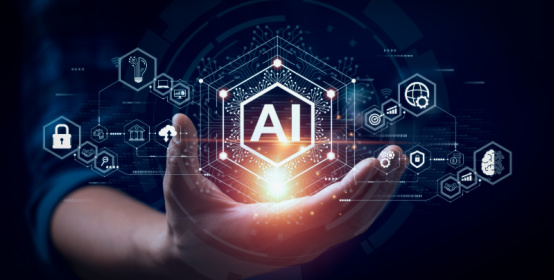
Artificial intelligence is reaching virtually every facet of every industry. It's used to take care of repetitive or low-priority tasks quickly, which allows people to handle more important things. When it comes to complex engineering or coding problems, artificial intelligence can be an incredibly useful ally. However, it's usefulness isn't without a few drawbacks.
The primary goal of artificial intelligence is to free up human labor for high priority tasks. In engineering, this often means using machine learning to discover and smooth over discrepancies and perform everything from simple to complex engineering tasks.
In the past, engineers were responsible for drafting and design work. Now, artificial intelligence is a virtually indispensable tool to aid this process. AI supports the work of engineers by enabling them to run simulations, explore new designs, and more. Machine learning algorithms also pore over data from different workflows, to uncover patterns and pick out which pieces of data are the most salient. This allows different engineering departments to work together and communicate more effectively.
While artificial intelligence is becoming an increasingly important tool for engineers, it does come with a few downsides. Here are the pros and cons of using this technology in engineering:
Pro: Artificial intelligence reduces the likelihood of human errors.
Humans have a tendency to see what we want to see. We're good at detecting patterns but can easily miss important information if it isn't what we hoped for. Humans are also subject to fatigue. If an engineer has to spend hours solving a complex problem, they may start to get a little tired and their work can suffer.
AI doesn't have these issues. It can point out patterns and salient info as long as it's directed to do so. It also doesn't get tired, so it's capable of working tirelessly on engineering problems, running complex simulations, and performing repetitive tasks as long as it needs to.
Con: Artificial intelligence is still only as good as its data.
For as far as artificial intelligence has come, it's still limited by the old adage “garbage in, garbage out.” Machine learning algorithms need to be trained, and they're only as good as the data they're trained on.
As artificial intelligence grows in complexity and capability, it can be easy to overlook this. However, AI isn't entirely unbiased, and it isn't infallible. It might be a very useful tool, but its usefulness can easily be limited by the data provided to it. This is why it's so important to take care when implementing AI.
Pro: AI can write thorough, easy to understand documentation.
With the advent of models like ChatGPT, engineers have an ally when it comes to creating documentation. This technology makes it easy to rewrite technical concepts or instructions in an easy-to-follow way. For software engineers, it can also help create documentation for confusing or under-documented code, so other engineers don't have to struggle to untangle their predecessors' work.
Con: AI requires time and resources to set up effectively.
Artificial intelligence isn't just plug-and-play. It takes time and effort to set it up in a way that will allow it to work effectively. While it can help engineers work more efficiently in the long run, it can initially feel counterproductive to implement it.
When you couple this with a natural fear of the unknown, engineers may experience some resistance when it comes to working alongside AI. This is understandable, but it's also important to realize that an increasing number of industries are adapting AI to their own purposes. It's worthwhile for engineers to see AI as another tool that can help them save time and effort and perform better.
Pro: Ai frees human engineers from repetitive tasks.
In software engineering, AI can be used to generate lines of code and convert them from one language to another, or map data between different formats. This is something that would be time-consuming for a human to do, and also doesn't really require a lot of creative thinking—in other words, it's something that machines can do faster than humans, while freeing humans up for the tasks at which we're naturally better.
It can also be used to create unit tests. These involve breaking software down into individual components and subjecting each part to a series of tests. It's possible to give a sufficiently advanced AI language model a function and allow it to generate the tests for you.
While artificial intelligence is fallible, and can take time to properly train and implement, this initial effort is well worth it. It can save immeasurable amounts of time, translate data between different languages and formats, provide clear documentation, and explain complex technical issues. When properly set up, AI's negative aspects are easily outweighed by its positive ones.